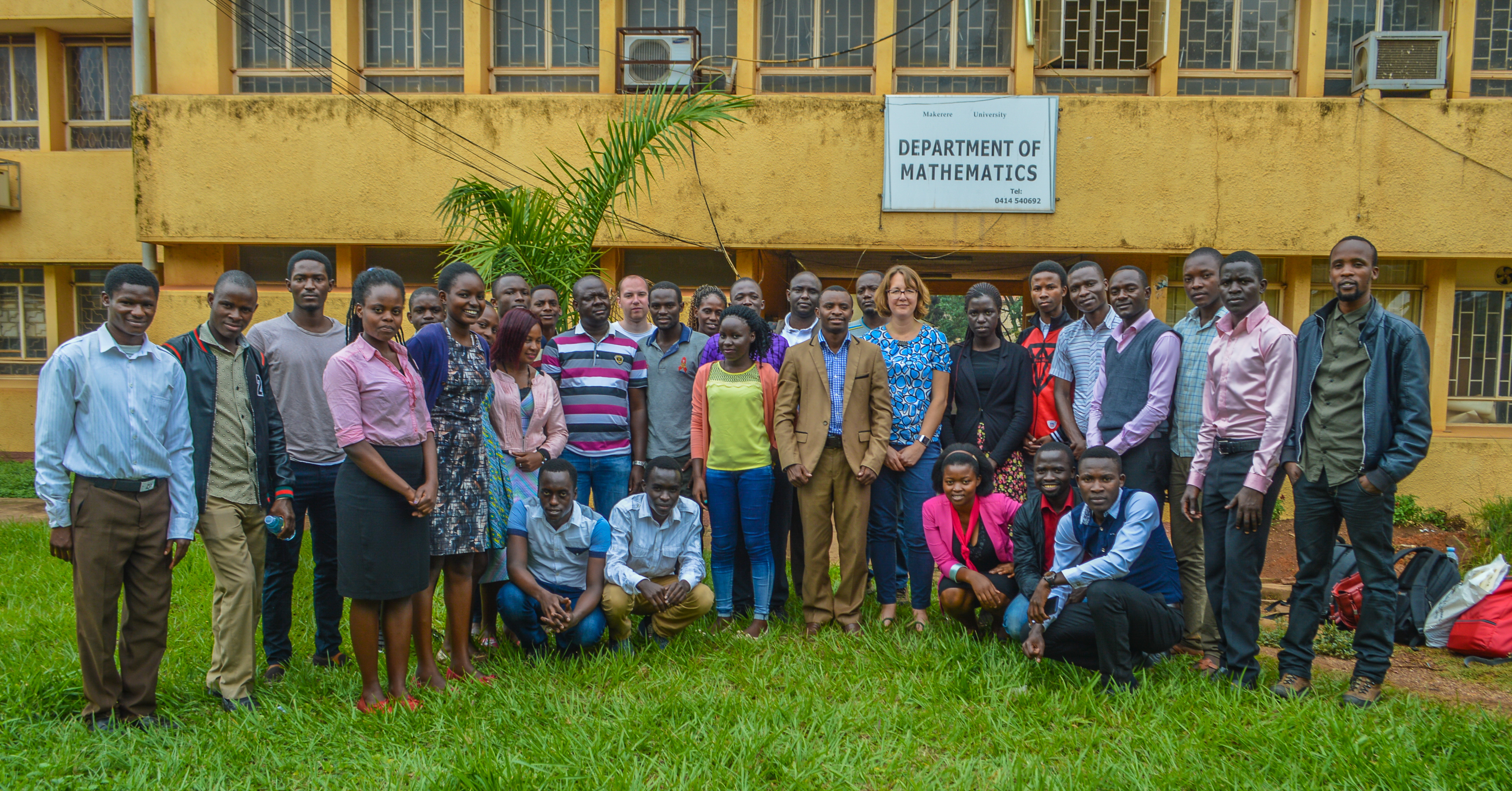Workshop in Uganda explores new data

On 13-14 October, Liz David-Barrett ran a workshop together with the Department of Mathematics at Makerere University, Uganda, and the African Maths Initiative on Analysing Corruption Risks in Procurement Data. The workshop brought together top Maths and Statistics students with civil society experts on anti-corruption in Uganda to analyse data and look for ‘red flags’ of corruption risk. As well as using open-source statistics software R-Instat to analyse our dataset of World Bank-funded procurement, the participants were able to work with our new dataset of Ugandan budget-funded procurement, which we are in the process of finalising. Moses Ojambo, Director of Policy and Capacity Building at the Public Procurement and Disposal of Assets Authority, also gave up his Saturday morning to talk to us about the PPDA’s work and to interact with the students and activists.
The participants worked in groups on their own analyses on the second day, developing research questions and using R-Instat to investigate them. They made great progress, and were particularly interested in comparing use of different procedure types across sectors and in cross-country comparisons of Uganda, Kenya, Tanzania and Rwanda.
Participants really valued the opportunity to work with local data and we are exploring whether this could lead to further cooperation. Here are some great quotes from the feedback:
“The workshop enabled me appreciate how using existing data can promote the fight against corruption. There is great potential for collaboration between academia and CSO in dealing with social challenges such as corruption”
“teaching me how to use it to analyse statistical data and identify loopholes in the data has added more value to me since now I can use this in my struggle to fight corruption in my country”
“It was cool time embracing new ideas”
“I really liked the software and I think this can be extended more to even secondary schools and even other learning centres so that every body can be aware of this thus thereby curbing these inconsistencies in our country.”